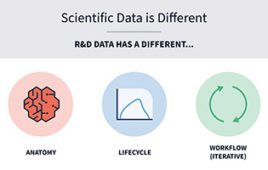Informatics Program Prepares for New Era in Healthcare
 |
| Courtesy of the College of Health and Public Affairs, UCF |
As the national debate on healthcare reform rages, the University of Central Florida has launched a new program designed to prepare students for jobs considered essential to streamlining and improving the quality of healthcare. UCF’s new healthcare informatics master’s degree program will educate students on the use of electronic medical records (EMRs) and the electronic exchange of information between organizations.
EMRs are considered a hallmark of the Obama administration’s efforts to modernize healthcare, explained Aaron Liberman, chair of the Department of Health Management and Informatics and a founder of the new program, which is the first of its kind in Florida. EMR systems allow healthcare providers to review, update and share a patient’s medical record using a secure computer network. They provide a more timely and efficient way to order medications and laboratory tests, improving healthcare delivery, reducing the need for paper records and potentially lowering costs.
“They’ll be able to use the information to recommend standards of practice for disease and injury management in both hospital and medical practice settings,” Liberman explained.
The students also will gain a proficiency in the management and analysis of large databases of health information. Identifying trends within this data is key to improving the overall quality, safety and efficiency of healthcare delivery.
Twenty-seven very diverse students are currently enrolled in the online program, which had hoped to attract between 15 and 20 students. “We had tremendous interest in the program and received 42 applications,” said Interim Program Director Kendall Ward.
Abdul Hai enrolled in the program because he saw the robust growth of the healthcare industry at a time when the economy is crashing. He spent more than 14 years working in information technology. But he never has worked in healthcare. By merging both, he plans to transition into the health informatics industry. “There are not enough properly trained and educated Americans to fill the employment demands,” Hai said.
Jeremy Martin, who earned his undergraduate degree in biomedical sciences in 2008 has always had an interest in computer technology. He called this career the “perfect intersection” of his interests and hopes to work as a health informatics specialist at a hospital when he graduates.
The healthcare informatics program will admit one class per year and has already begun recruiting its class for August 2010.




